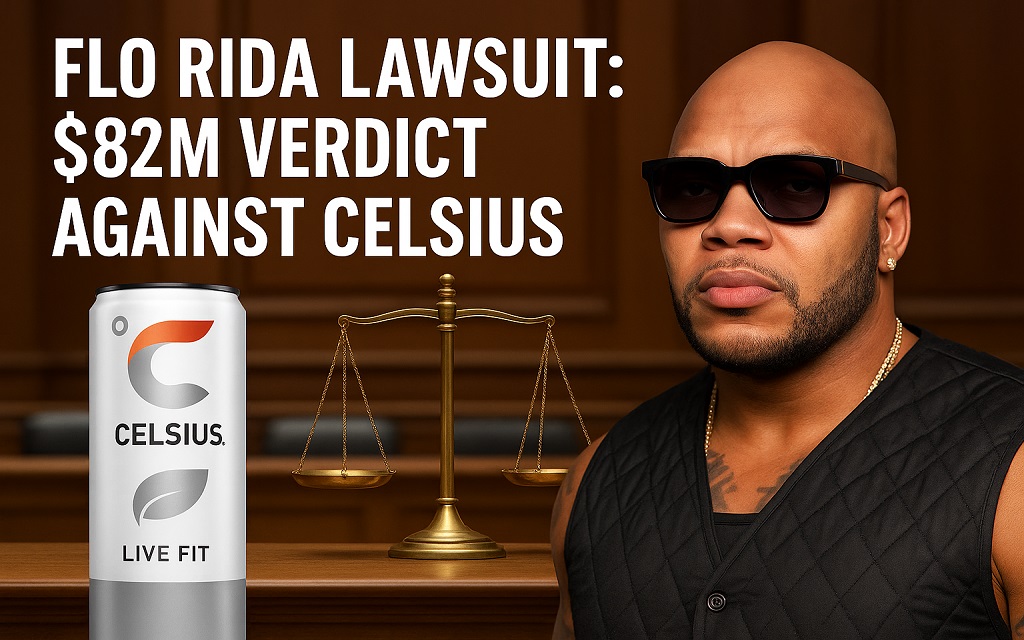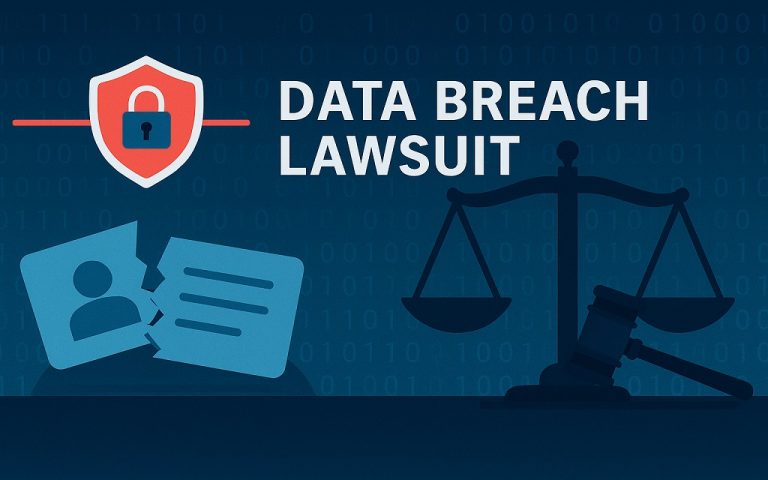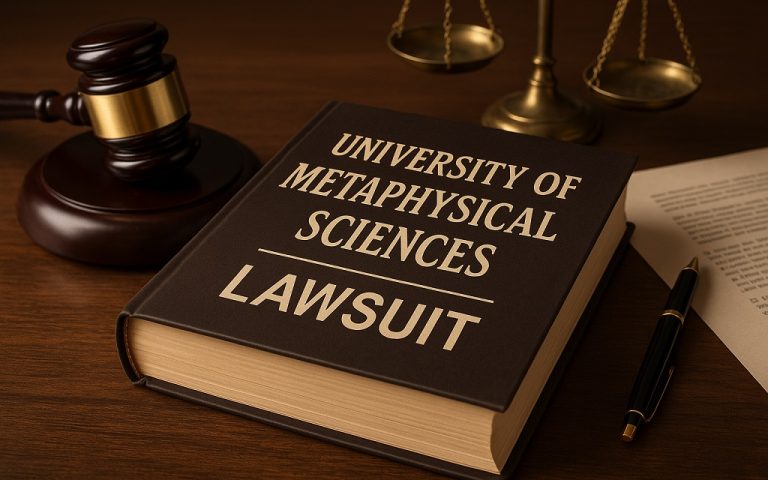Status (Updated November 5, 2025): A Florida appeals court affirmed liability against Celsius but reversed the damages measure, ruling the jury used the wrong stock valuation date; the case was remanded to recalculate damages. Celsius then sought discretionary review in the Florida Supreme Court (SC2025-0284), which remains open as of today.
Flo Rida (Tramar Dillard) and his companies sued Celsius Holdings, Inc. over unpaid equity and bonuses tied to 2014 and 2016 endorsement agreements. A Broward County jury awarded $82.6 million on January 18, 2023. Case: Strong Arm Productions USA, Inc.; D3M Licensing Group, LLC; and Tramar Dillard p/k/a Flo Rida v. Celsius Holdings, Inc., No. CACE-21-008997 (17th Jud. Cir., Broward County).
In December 2024, Florida’s Fourth District Court of Appeal affirmed the trial court on all issues except damages, holding the jury should have valued stock as of the breach date rather than at trial. The court reversed and remanded for a new damages calculation. In March 2025, Celsius invoked the Florida Supreme Court’s discretionary jurisdiction; that docket (SC2025-0284) remains open.
Who Is Flo Rida?
Flo Rida, actual name Tramar Lacel Dillard, is an American rapper and performer. He was born on September 16, 1979, in Carol City, Florida. He rose to prominence in 2007 with his smash tune “Low,” which topped global charts. His music combines hip-hop, pop, and club elements.
You may be familiar with his previous chart-topping hits, such as “Right Round,” “Club Can’t Handle Me,” and “Good Feeling.” He has earned multiple Billboard awards and global recognition. He also built a strong business profile through endorsements and brand partnerships. Flo Rida remains a well-known figure in both music and entertainment law.
Why Did Flo Rida Sue Celsius?
Flo Rida signed an endorsement deal with Celsius in 2014. The agreement was renewed in 2016. It lasted until 2018. His job was to promote Celsius drinks in music videos, concerts, and social media.
According to the lawsuit, the company offered more than just money. It included stock options and bonus payments based on sales performance. Flo Rida claimed Celsius failed to deliver those rewards.
Please note that he filed the lawsuit in Broward County, Florida. His legal team said the company owed him equity. The court documents revealed terms connected to performance benchmarks. Celsius said the sales conditions were not met. They argued that they owed nothing further.
What Was the Jury’s Decision?
The study started in January 2023. After analysing the evidence, the jury determined that Celsius had broken the contract. You should note the final amount awarded: $82.6 million. That included stock value and missed bonuses.
Legal experts stated that the jury deemed Flo Rida’s testimony trustworthy. His attorneys revealed how the corporation leveraged his image to grow its brand. They claimed Celsius never fulfilled its promises. The jury’s decision reflected the importance of clear contracts. It also highlighted the risks companies face in celebrity partnerships.
How Did Flo Rida Help Celsius?
Flo Rida featured Celsius in several music events. He posted about the drinks on social platforms. His influence reached millions of fans. You should understand that celebrity power often drives brand growth. A 2021 Nielsen study found that celebrity endorsements increase product recall by 20%.
According to court statements, Celsius shares rose in value during and after the contract. Flo Rida’s team argued that his involvement played a key role. That claim helped build the foundation for the lawsuit.
What Does This Case Mean for You?
You may wonder what lessons you can learn from a celebrity lawsuit. The answer is simple. If you work in contracts, law, or marketing, the outcome matters. You should focus on five key points:
- Always define compensation terms clearly
- Track all performance metrics
- Review contracts with legal counsel
- Communicate with partners often
- Avoid assumptions in financial deals
The Flo Rida lawsuit offers a real-world example of what happens when a contract breaks down.
How Do Stock Rights Impact Endorsement Deals?
Endorsement contracts often include stock shares. Companies use equity to attract influencers. Stock rights typically become active after achieving sales milestones. You should know that in this case, Celsius promised shares to Flo Rida. He claimed that the company never delivered on that promise.
A 2022 Harvard Business Review article reported that equity-based deals are experiencing growth. The risks also increase when companies fail to meet legal standards. You should work with legal experts before signing such contracts.
What Legal Grounds Did Flo Rida Use?
Flo Rida was sued for breach of contract. His team claimed Celsius violated key parts of the agreement. The lawsuit focused on three main issues:
- Non-payment of agreed-upon bonuses
- Failure to issue stock options
- Misuse of his name and image
You should be aware that Florida state laws protect these rights. Courts enforce business contracts if both parties signed willingly. Legal records show that Flo Rida followed proper steps. He documented all terms and supported his claim with marketing evidence.
Did Celsius Admit to Any Wrongdoing?
Celsius denied the claims. They said Flo Rida did not meet the required benchmarks. The company argued that no further payment was due. However, the jury disagreed. The court documents showed evidence of brand use. Flo Rida’s lawyer said Celsius profited without honoring the deal.
Celsius has not issued a full public apology. They acknowledged the ruling but have not confirmed payment plans. You should monitor the company’s next steps. Lawsuits like this can impact share prices and investor trust.
Must Read: What Is the Aung Kyaw Zaw MD Lawsuit and Why Does It Matter?
What Do Legal Experts Say?
Legal professionals view this case as a milestone. It highlights the legal risks in celebrity branding. You should know what attorneys emphasized in interviews:
- Contracts must outline bonus triggers
- Equity must match legal ownership rules
- Image use must stay within signed limits
Several experts from Law.com said the case may lead to more lawsuits. Brands now face pressure to offer transparent deals. The National Law Review confirmed that future contracts may be drafted to avoid vague clauses.
Flo Rida v. Celsius — Current Status (Updated Nov 5, 2025)
| Milestone | Date | Where | Status / Key Holding | Sources |
|---|---|---|---|---|
| Jury verdict | Jan 18, 2023 | 17th Judicial Circuit (Broward County, FL) | Jury awarded $82.6M to Flo Rida and his companies. | |
| Appellate decision | Dec 11, 2024 | Florida Fourth DCA (No. 4D2023-0452) | Liability affirmed; damages calculation reversed (stock should be valued as of breach, not at trial); case remanded for recalculation. | |
| Florida Supreme Court docket | Mar 3, 2025 (opened) | SC2025-0284 | Celsius filed a notice to invoke discretionary review; docket is open as of Nov 5, 2025. | |
| Case caption (trial court) | Filed 2021 | Broward County | Strong Arm Productions USA, Inc.; D3M Licensing Group, LLC; and Tramar Dillard p/k/a Flo Rida v. Celsius Holdings, Inc. (No. CACE-21-008997). | CC Frontend Template |
| What’s next | — | Trial court on remand (unless stayed/altered by further review) | Damages must be recalculated consistent with the Fourth DCA’s opinion; outcome of any Florida Supreme Court review could affect timing and scope. |
What Are the Long-Term Effects of Celsius?
The verdict could reshape Celsius’s business model. Investors now demand more accountability. Future endorsements may lose value or face increased scrutiny under the law. You should track Celsius stock trends. After the verdict, media reports showed a dip in share confidence.
A Bloomberg report stated that cases like this scare shareholders. Public companies are required to report both legal payouts and future liabilities. The financial cost goes beyond the verdict.
Can Other Artists File Similar Claims?
Other artists can take legal action if similar contracts exist. Lawyers now use the Flo Rida case as a reference. You should ask yourself if your contracts offer legal protection. If not, it is time to review them. The music and sports industries rely on image-based revenue. That makes contract clarity even more vital. Legal firms now advise entertainers to seek third-party audits during contract terms.
Why Should Small Brands Pay Attention?
Small companies often use micro-influencers. Though on a smaller scale, the legal rules stay the same. You should protect your business by using:
- Written contracts
- Time-stamped campaign data
- Clear payout terms
- Professional review
Failing to follow these steps could result in legal claims and damage to your brand. Even small startups must respect image rights.
What Happens Next in the Flo Rida Lawsuit?
Celsius may appeal the verdict. Legal analysts expect more updates in the coming months. You should follow trusted legal sources to stay informed. Appeals may alter the payment schedule but rarely result in the cancellation of the judgment. The court set a precedent. Future legal teams will reference this case in similar disputes.
FAQs
What did the jury decide?
A Broward County jury awarded $82.6 million to Flo Rida on January 18, 2023, in his contract suit against Celsius.
What did the appeal change?
The Fourth DCA left Flo Rida’s win on liability intact but reversed the damages measure because the jury valued shares at trial instead of breach; the case was remanded for recalculation.
What’s the current procedural posture?
Celsius filed for discretionary review in the Florida Supreme Court (No. SC2025-0284) on March 3, 2025; the docket is open as of November 5, 2025.
Who are the parties and what’s the case number?
Strong Arm Productions USA, Inc.; Tramar Dillard p/k/a Flo Rida; and D3M Licensing Group, LLC (plaintiffs) v. Celsius Holdings, Inc. (defendant), No. CACE-21-008997 (Broward County, Florida). courthousenews.com
What contracts were at issue?
Flo Rida’s 2014 and 2016 endorsement agreements with Celsius; he served as a brand ambassador 2014–2018.
Final Words
You should treat the Flo Rida lawsuit as a warning and a lesson. Legal contracts carry real weight. Business deals tied to branding must remain transparent and fair. Flo Rida proved that even billion-dollar companies must respect artists’ rights. If they fail, the court will act. Your takeaway is simple. Protect your deals. Check your contracts. Value your name and image. Do you trust your current agreements? If not, review them today.
Disclaimer: This article provides a general overview of the Flo Rida lawsuit and related legal issues. It is not legal advice. It is based on publicly available information and is intended for informational purposes only. It does not constitute legal advice.
Musarat Bano is a content writer for JudicialOcean.com who covers lawsuits, legal news, and general legal topics. Her work focuses on research-based, informational content developed from publicly available sources and is intended to support public awareness. She does not provide legal advice or professional legal services.




